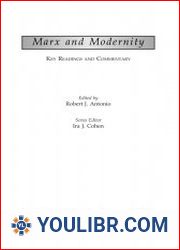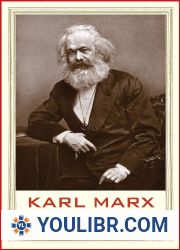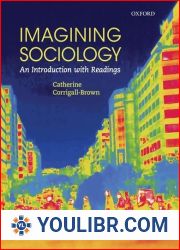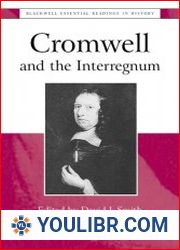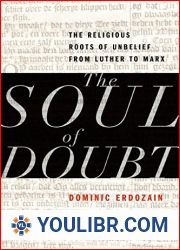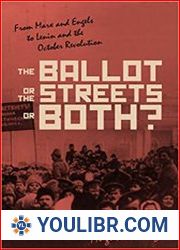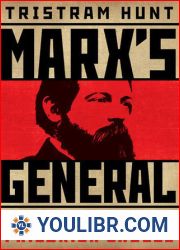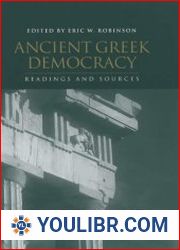
BOOKS - HUMANITIES - Marx and Modernity. Key Readings and Commentary

Marx and Modernity. Key Readings and Commentary
Author: Robert J. Antonio (ed.)
Year: 2003
Format: PDF
File size: 4 MB
Language: ENG

Year: 2003
Format: PDF
File size: 4 MB
Language: ENG

This collection brings together key readings from Marx's work that illuminate his thought on modernity and its relationship to technology. The Plot of the Book "Marx and Modernity" The book "Marx and Modernity: Key Readings and Commentary" offers a comprehensive overview of Karl Marx's thoughts on modernity and technology, highlighting their relevance and significance in today's society. The book is divided into sections, each focusing on a different aspect of Marx's ideas, such as alienation, commodification, and the role of technology in shaping modern society. Section 1: Alienation In the first section, readers are introduced to Marx's concept of alienation, which he believed was a fundamental feature of modern society. Alienation refers to the process by which people become disconnected from their labor, their fellow workers, and their humanity. Marx argues that under capitalism, workers are reduced to being mere commodities, and their labor is exploited for the benefit of the ruling class. This leads to feelings of powerlessness, isolation, and a lack of meaning in life. Section 2: Commodification The second section explores Marx's idea of commodification, which he saw as a key feature of modern society. In this context, commodities are not just physical objects but also social relationships and even people themselves. Marx argues that the pursuit of profit and the drive for more and better commodities has led to the dehumanization of society, where people are treated as objects to be bought and sold rather than as human beings with inherent dignity and worth. Section 3: Technology and Modernity The third section delves into Marx's views on technology and its role in shaping modern society. Marx believed that technology had the potential to liberate humanity, but he also recognized the danger of it being used to control and oppress people. He argued that technology could either serve the interests of the ruling class or the masses, depending on who controlled it.
Эта коллекция объединяет ключевые чтения из работ Маркса, которые освещают его мысль о современности и ее отношении к технологиям. Сюжет книги «Маркс и современность» Книга «Маркс и современность: ключевые чтения и комментарии» предлагает всесторонний обзор мыслей Карла Маркса о современности и технологиях, подчеркивая их актуальность и значимость в современном обществе. Книга разделена на разделы, каждый из которых фокусируется на различных аспектах идей Маркса, таких как отчуждение, коммодификация и роль технологий в формировании современного общества. Раздел 1: Отчуждение В первом разделе читателей знакомят с марксовской концепцией отчуждения, которая, по его мнению, была фундаментальной особенностью современного общества. Отчуждением называют процесс, посредством которого люди оказываются оторванными от своего труда, своих коллег по работе и своей человечности. Маркс утверждает, что при капитализме рабочие сводятся к тому, чтобы быть просто товарами, а их труд эксплуатируется на благо правящего класса. Это приводит к чувству бессилия, изоляции и отсутствию смысла в жизни. Раздел 2: Коммодификация Во втором разделе исследуется идея Маркса о коммодификации, которую он рассматривал как ключевую особенность современного общества. В этом контексте товары - это не только физические объекты, но и социальные отношения и даже сами люди. Маркс утверждает, что стремление к прибыли и стремление к большему количеству и лучшим товарам привело к дегуманизации общества, где люди рассматриваются как объекты, которые должны быть куплены и проданы, а не как люди с присущим им достоинством и ценностью. Раздел 3: Технологии и современность Третий раздел углубляется в взгляды Маркса на технологии и их роль в формировании современного общества. Маркс считал, что технологии обладают потенциалом для освобождения человечества, но он также признавал опасность их использования для контроля и угнетения людей. Он утверждал, что технологии могут либо служить интересам правящего класса, либо масс, в зависимости от того, кто ими управлял.
Cette collection réunit des lectures clés des œuvres de Marx qui éclairent sa pensée de la modernité et de son rapport à la technologie. L'histoire du livre « Marx et la modernité » livre « Marx et la modernité : lectures et commentaires clés » offre un aperçu complet de la pensée de Karl Marx sur la modernité et la technologie, soulignant leur pertinence et leur importance dans la société moderne. livre est divisé en sections, chacune se concentrant sur différents aspects des idées de Marx, tels que l'aliénation, la commercialisation et le rôle de la technologie dans la formation de la société moderne. Section 1 : Aliénation Dans la première section, les lecteurs sont familiarisés avec le concept marxiste d'aliénation, qui, selon lui, était une caractéristique fondamentale de la société moderne. L'aliénation est le processus par lequel les gens sont séparés de leur travail, de leurs collègues de travail et de leur humanité. Marx affirme qu'avec le capitalisme, les travailleurs sont réduits à être de simples biens et leur travail est exploité pour le bien de la classe dirigeante. Il en résulte un sentiment d'impuissance, d'isolement et de manque de sens dans la vie. Section 2 : Commodification La deuxième section explore l'idée de Marx d'une commodification qu'il considère comme une caractéristique essentielle de la société moderne. Dans ce contexte, les biens ne sont pas seulement des objets physiques, mais aussi des relations sociales et même des personnes elles-mêmes. Marx affirme que la recherche du profit et la recherche de biens plus nombreux et meilleurs ont conduit à la déshumanisation de la société, où les gens sont considérés comme des objets à acheter et à vendre, et non comme des gens avec leur dignité et leur valeur inhérentes. Section 3 : Technologie et modernité La troisième section se penche sur le point de vue de Marx sur la technologie et son rôle dans la formation de la société moderne. Marx croyait que la technologie avait le potentiel de libérer l'humanité, mais il reconnaissait aussi le danger de les utiliser pour contrôler et opprimer les gens. Il a soutenu que la technologie peut servir soit les intérêts de la classe dirigeante, soit les masses, selon qui les a dirigées.
Esta colección reúne lecturas clave de las obras de Marx que iluminan su pensamiento sobre la modernidad y su relación con la tecnología. La trama del libro Marx y la modernidad libro Marx y la modernidad: lecturas y comentarios clave ofrece una visión global de los pensamientos de Karl Marx sobre la modernidad y la tecnología, destacando su relevancia e importancia en la sociedad actual. libro se divide en secciones, cada una de las cuales se centra en diferentes aspectos de las ideas de Marx, como la alienación, la mercantilización y el papel de la tecnología en la formación de la sociedad moderna. Sección 1: Alienación En la primera sección, los lectores se familiarizan con el concepto marxista de alienación, que en su opinión era una característica fundamental de la sociedad moderna. La alienación se llama el proceso por el cual las personas se encuentran separadas de su trabajo, de sus compañeros de trabajo y de su humanidad. Marx sostiene que bajo el capitalismo los trabajadores se reducen a ser simplemente mercancías, y su trabajo es explotado en beneficio de la clase dominante. Esto conduce a sentimientos de impotencia, aislamiento y falta de sentido en la vida. Sección 2: La mercantilización La segunda sección explora la idea de Marx de la mercantilización, que él consideraba una característica clave de la sociedad moderna. En este contexto, los bienes no son sólo objetos físicos, sino también relaciones sociales e incluso las propias personas. Marx sostiene que el afán de lucro y la búsqueda de más y mejores bienes han llevado a la deshumanización de una sociedad donde las personas son vistas como objetos que deben ser comprados y vendidos y no como personas con dignidad y valor inherentes. Sección 3: Tecnología y modernidad La tercera sección profundiza en las opiniones de Marx sobre la tecnología y su papel en la formación de la sociedad moderna. Marx creía que la tecnología tenía el potencial de liberar a la humanidad, pero también reconocía el peligro de usarla para controlar y oprimir a la gente. Argumentó que la tecnología podía servir a los intereses de la clase dominante o de las masas, dependiendo de quién los gobernara.
Esta coleção reúne leituras essenciais de um trabalho de Marx que ilumina o seu pensamento sobre a modernidade e sua atitude em relação à tecnologia. O Livro Marx e Contemporâneo «Marx e a modernidade: leituras e comentários essenciais» oferece uma visão completa dos pensamentos de Karl Marx sobre modernidade e tecnologia, destacando sua relevância e importância na sociedade contemporânea. O livro é dividido em seções, cada uma focando em vários aspectos das ideias de Marx, como exclusão, commodity e o papel da tecnologia na formação da sociedade moderna. Secção 1: Alienação Na primeira seção, os leitores apresentam o conceito marxiano de exclusão, que, em sua opinião, era uma característica fundamental da sociedade moderna. A exclusão é chamada de um processo pelo qual as pessoas ficam afastadas do seu trabalho, dos seus colegas de trabalho e da sua humanidade. Marx afirma que, com o capitalismo, os trabalhadores são apenas bens, e o seu trabalho é explorado para o bem da classe dirigente. Isso leva a um sentimento de impotência, isolamento e falta de sentido na vida. Secção 2: Commodity A segunda seção explora a ideia de Marx sobre a commodity, que ele considerou uma característica fundamental da sociedade moderna. Neste contexto, os bens não são apenas objetos físicos, mas também relações sociais e até mesmo as próprias pessoas. Marx afirma que o desejo de lucro e a busca de mais e melhores bens levou à desumanização de uma sociedade onde as pessoas são consideradas como objetos que devem ser comprados e vendidos, e não como pessoas com dignidade e valor inerentes. Secção 3: Tecnologia e modernidade A terceira seção aprofunda a visão de Marx sobre a tecnologia e seu papel na formação da sociedade moderna. Marx acreditava que a tecnologia tinha o potencial de libertar a humanidade, mas também reconheceu o perigo de usá-la para controlar e oprimir as pessoas. Ele argumentou que a tecnologia pode servir os interesses da classe dirigente ou das massas, dependendo de quem a governou.
Questa raccolta unisce le letture chiave delle opere di Marx che mettono in luce il suo pensiero sulla modernità e il suo rapporto con la tecnologia. La trama del libro Marx and Contemporary Book «Marx e la modernità: letture e commenti chiave» offre una panoramica completa dei pensieri di Karl Marx sulla modernità e la tecnologia, sottolineando la loro rilevanza e rilevanza nella società contemporanea. Il libro è suddiviso in sezioni che si concentrano su diversi aspetti delle idee di Marx, come l'esclusione, la commodity e il ruolo della tecnologia nella formazione della società moderna. Sezione 1: Emarginazione Nella prima sezione, i lettori presentano il concetto di esclusione marxiana, che ritiene fosse una caratteristica fondamentale della società moderna. L'emarginazione è definita un processo attraverso il quale le persone si trovano separate dal loro lavoro, dai loro colleghi di lavoro e dalla loro umanità. Marx sostiene che, con il capitalismo, i lavoratori si limitano ad essere merce e il loro lavoro viene sfruttato per il bene della classe dirigente. Questo porta a un senso di impotenza, isolamento e mancanza di senso nella vita. Sezione 2: Commodity Nella seconda sezione viene esplorata l'idea di Marx sulla commodizzazione, che ha considerato una caratteristica fondamentale della società moderna. In questo contesto, le merci non sono solo oggetti fisici, ma anche relazioni sociali e persino le persone stesse. Marx sostiene che l'impegno per il profitto e la ricerca di più e migliori beni ha portato alla disumanizzazione della società, dove le persone sono considerate come oggetti da acquistare e vendere e non come persone con la dignità e il valore intrinseco. Sezione 3: Tecnologia e modernità La terza sezione approfondisce la visione di Marx sulla tecnologia e il loro ruolo nella formazione della società moderna. Marks riteneva che la tecnologia avesse il potenziale di liberare l'umanità, ma riconosceva anche il pericolo di usarla per controllare e opprimere le persone. Egli sosteneva che la tecnologia poteva servire gli interessi della classe dirigente o delle masse, a seconda di chi li gestiva.
Diese Sammlung vereint wichtige sungen aus Marx "Werken, die sein Denken über die Moderne und ihr Verhältnis zur Technik beleuchten. Die Handlung des Buches „Marx und die Moderne“ Das Buch „Marx und die Moderne: Schlüssellesungen und Kommentare“ bietet einen umfassenden Überblick über die Gedanken von Karl Marx zur Moderne und Technologie und unterstreicht deren Relevanz und Relevanz in der modernen Gesellschaft. Das Buch ist in Abschnitte unterteilt, die sich jeweils auf verschiedene Aspekte von Marx'Ideen konzentrieren, wie Entfremdung, Kommodifizierung und die Rolle der Technologie bei der Gestaltung der modernen Gesellschaft. Abschnitt 1: Entfremdung Im ersten Abschnitt werden die ser mit dem Marx'schen Konzept der Entfremdung vertraut gemacht, das seiner Meinung nach ein grundlegendes Merkmal der modernen Gesellschaft war. Entfremdung ist der Prozess, durch den Menschen von ihrer Arbeit, ihren Arbeitskollegen und ihrer Menschlichkeit getrennt werden. Marx argumentiert, dass im Kapitalismus die Arbeiter darauf reduziert werden, nur Waren zu sein, und ihre Arbeit zum Wohle der herrschenden Klasse ausgebeutet wird. Dies führt zu einem Gefühl der Ohnmacht, Isolation und nnlosigkeit im ben. Abschnitt 2: Kommodifizierung Der zweite Abschnitt untersucht Marx "Idee der Kommodifizierung, die er als Schlüsselmerkmal der modernen Gesellschaft ansah. In diesem Zusammenhang sind Waren nicht nur physische Objekte, sondern auch soziale Beziehungen und sogar die Menschen selbst. Marx argumentiert, dass das Streben nach Profit und das Streben nach mehr und besseren Waren zu einer Entmenschlichung der Gesellschaft geführt hat, in der Menschen als Objekte angesehen werden, die gekauft und verkauft werden müssen, und nicht als Menschen mit inhärenter Würde und Wert. Abschnitt 3: Technologie und Moderne Der dritte Abschnitt befasst sich mit Marx'Ansichten zur Technologie und ihrer Rolle bei der Gestaltung der modernen Gesellschaft. Marx glaubte, dass Technologie das Potenzial hat, die Menschheit zu befreien, aber er erkannte auch die Gefahr, sie zu benutzen, um Menschen zu kontrollieren und zu unterdrücken. Er argumentierte, dass Technologie entweder den Interessen der herrschenden Klasse oder der Massen dienen könnte, je nachdem, wer sie regierte.
''
Bu derleme, Marx'ın modernite ve onun teknolojiyle ilişkisi üzerine düşüncelerini aydınlatan çalışmalarından önemli okumaları bir araya getiriyor. "Marx ve Modernite" kitabının konusu "Marx ve Modernite: Temel Okumalar ve Yorumlar" kitabı, Karl Marx'ın modernite ve teknoloji hakkındaki düşüncelerine kapsamlı bir genel bakış sunarak, modern toplumdaki ilgilerini ve ilgilerini vurgulamaktadır. Kitap, her biri yabancılaşma, metalaştırma ve teknolojinin modern toplumu şekillendirmedeki rolü gibi Marx'ın fikirlerinin farklı yönlerine odaklanan bölümlere ayrılmıştır. Bölüm 1: Yabancılaşma İlk bölümde, okuyucular, modern toplumun temel bir özelliği olduğuna inandığı Marksist yabancılaşma kavramına tanıtılır. Yabancılaşma, insanların kendilerini işlerinden, iş arkadaşlarından ve insanlıklarından kopuk buldukları süreci ifade eder. Marx, kapitalizmde işçilerin yalnızca meta olmaya indirgendiğini ve emeklerinin egemen sınıfın yararına sömürüldüğünü ileri sürer. Bu, güçsüzlük, izolasyon ve yaşamda anlam eksikliği duygularına yol açar. Bölüm 2: Metalaşma İkinci bölüm, Marx'ın modern toplumun önemli bir özelliği olarak gördüğü metalaşma fikrini irdeliyor. Bu bağlamda, mallar sadece fiziksel nesneler değil, aynı zamanda sosyal ilişkiler ve hatta insanların kendisidir. Marx, kâr arzusunun ve daha fazla ve daha iyi mallar arzusunun, insanların doğuştan haysiyet ve değere sahip insanlar yerine satın alınacak ve satılacak nesneler olarak görüldüğü toplumun insanlıktan çıkarılmasına yol açtığını savunuyor. Bölüm 3: Teknoloji ve modernite Üçüncü bölüm Marx'ın teknoloji hakkındaki görüşlerini ve modern toplumu şekillendirmedeki rolünü inceler. Marx, teknolojinin insanlığı özgürleştirme potansiyeline sahip olduğuna inanıyordu, ancak insanları kontrol etmek ve ezmek için kullanmanın tehlikelerini de kabul etti. Teknolojinin, onu kimin yönettiğine bağlı olarak, egemen sınıfın ya da kitlelerin çıkarlarına hizmet edebileceğini savundu.
تجمع هذه المجموعة قراءات رئيسية من أعمال ماركس التي تسلط الضوء على فكره في الحداثة وعلاقتها بالتكنولوجيا. تقدم حبكة كتاب «ماركس والحداثة» كتاب «ماركس والحداثة: القراءات والتعليقات الرئيسية» لمحة عامة شاملة عن أفكار كارل ماركس حول الحداثة والتكنولوجيا، مع التأكيد على أهميتها وأهميتها في المجتمع الحديث. ينقسم الكتاب إلى أقسام، يركز كل منها على جوانب مختلفة من أفكار ماركس، مثل الاغتراب والتسليع ودور التكنولوجيا في تشكيل المجتمع الحديث. القسم 1: الاغتراب في القسم الأول، يتم تعريف القراء بالمفهوم الماركسي للاغتراب، والذي يعتقد أنه سمة أساسية للمجتمع الحديث. يشير الاغتراب إلى العملية التي يجد الناس أنفسهم من خلالها منفصلين عن عملهم وزملائهم في العمل وإنسانيتهم. يجادل ماركس بأنه في ظل الرأسمالية، يتم تحويل العمال إلى مجرد سلع، ويتم استغلال عملهم لصالح الطبقة الحاكمة. وهذا يؤدي إلى الشعور بالعجز والعزلة وانعدام المعنى في الحياة. القسم 2: التسليع يستكشف القسم الثاني فكرة ماركس عن التسليع، والتي اعتبرها سمة رئيسية للمجتمع الحديث. في هذا السياق، السلع ليست فقط أشياء مادية، ولكن أيضًا العلاقات الاجتماعية وحتى الأشخاص أنفسهم. يجادل ماركس بأن الرغبة في الربح والرغبة في المزيد من السلع الأفضل أدت إلى تجريد المجتمع من إنسانيته، حيث يُنظر إلى الناس على أنهم أشياء يجب شراؤها وبيعها، بدلاً من الأشخاص الذين يتمتعون بكرامة وقيمة متأصلتين. القسم 3: التكنولوجيا والحداثة يتعمق القسم الثالث في آراء ماركس حول التكنولوجيا ودورها في تشكيل المجتمع الحديث. يعتقد ماركس أن التكنولوجيا لديها القدرة على تحرير البشرية، لكنه أدرك أيضًا مخاطر استخدامها للسيطرة على الناس وقمعهم. وقال إن التكنولوجيا يمكن أن تخدم مصالح الطبقة الحاكمة أو الجماهير، اعتمادًا على من يديرها.
このコレクションは、マルクスの現代性と技術との関係についての彼の思考を照らす作品からの重要な読書をまとめたものです。本のプロット「マルクスとモダニティ」本「マルクスとモダニティ:重要な読書とコメント」は、現代社会におけるそれらの関連性と関連性を強調し、現代性と技術に関するカール・マルクスの考えの包括的な概要を提供しています。この本は、マルクスの思想の様々な側面に焦点を当て、疎外、商品化、現代社会の形成における技術の役割といった部分に分かれています。セクション1:疎外最初のセクションでは、読者はマルクスの疎外の概念に紹介されています。疎外とは、人々が自分の仕事、仕事の同僚、そして彼らの人間性から自分自身が切り離されていることに気付くプロセスを指します。マルクスは、資本主義の下では労働者は単なる商品であることに減り、その労働は支配階級の利益のために搾取されると主張している。これは、無力感、孤立感、人生における意味の欠如につながります。第2節:コモディフィケーション第2節では、マルクスが現代社会の重要な特徴として捉えたコモディフィケーションについて考察します。この文脈では、商品は物理的な物体だけでなく、社会的関係、さらには人々自身でもあります。マルクスは、利益への欲求とより良い商品への欲求は、固有の尊厳と価値を持つ人々よりも、人々が売買される対象として見られる社会の非人道化につながったと主張している。第3節:テクノロジーとモダニティ第3節では、現代社会を形作る上でのマルクスの技術とその役割に関する見解を紹介します。マルクスは、テクノロジーが人類を解放する可能性を秘めていると信じていたが、それを利用して人々をコントロールし、抑圧する危険性も認識していた。彼は、テクノロジーは支配階級や大衆の利益に役立つ可能性があると主張した。







